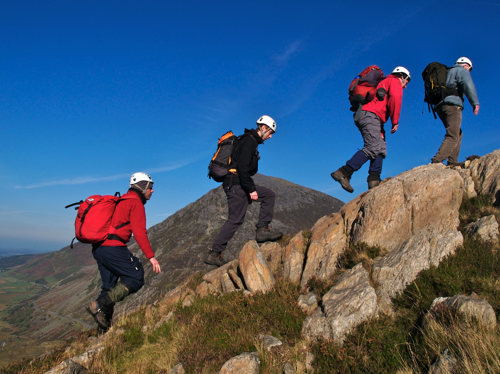5 Minutes with Sergio Resendiz
Doug had a recent catch up with Sergio in which they discussed how great teams are developed

Sergio has gained a reputation for building high performing teams during his last 10 years in a variety of leadership roles in the industrial technology sector with Murreleltronik and Belden. Doug Mackay, Managing Director at Collingwood and Leader of the Technology Practice, enjoyed a recent catch up with Sergio in which they discussed how great teams are developed. Here is what they discussed:
Doug: You recently left Belden after 9 years. Please outline the culture of Belden and the challenges you were given in your two sales leadership roles.
Sergio: The culture at Belden is great. There is a true underlying element of competitiveness that drives high performance. The opportunities for career and personal development that Belden offers are endless for those that take advantage of them and deliver results. I think the biggest challenges for me, as a sales leader at Belden, were translating the corporate strategy into actionable daily execution at ground level, and creating and promoting a culture, within my team, of teamwork, trust, and resiliency.
Doug: How would you define what a high performing sales team was at Belden and how did you go about assembling one?
Sergio: For me the measure of high performance has always been directly connected to delivering results. However, in delivering results, I always like to know the “what?” (regarding what types of results were achieved) and the “how?” (how were those results were achieved). Therefore, it has always been important to me to identify the causes of high performing individuals – e.g. work ethic, collaboration, strategic thinking, problem solving- because these will ultimately create sustainable revenue streams.
Doug: What were the barriers to attracting outstanding talent?
Sergio: The main barrier for me was always aligning the cultural fit between a candidate and the organization. I met many outstanding candidates over my time at Belden. However, sometimes, there were key misalignments in culture in which I knew that the relationship would not last long if we were to move forwards with hiring. Additionally, to cultural fit, I found, particularly in younger generations, that the candidates are very interested in “clear” career paths for development. If the candidate did not feel that there was a path for growth, that person lost interest rather quickly.
Doug: What do you think are the key ingredients of a great leader in order to achieve consistent success from your team?
Sergio: I believe that great leaders are great coaches. They create a certain level of trust that promotes loyalty; they provide avenues for the development of a skill or craft; they identify their team’s individual strengths and weaknesses; and more importantly, they always encourage, despite mistakes made, to continue to try and enhance their teams skills and support progression.
The greatest coaches are the ones that win a lot; the great leaders are not different.
Doug: In times of economic challenge, such as during this global pandemic, how do you adapt your leadership style to keep your team engaged, motivated and performing?
Sergio: I am not sure if the processes in which our teams operated changed much. However, I do believe that we had to adapt to new ways of communication and, potentially, increased frequency of touch. Throughout most of my leadership career I have led virtual teams, I was very comfortable with the idea of implementing disciplined and repeatable processes for our work loads and trusting the team to ultimately help achieve our goals.
I believe that when there is a high element of trust in the organization, productivity does not fluctuate in a team like this – at least I have not seen that within my teams. However, it is important to have the right measures and indicators in place to ensure no loss in productivity depending on the business and the potential impact of remote/virtual working.
Doug: What achievements are you most proud of during your 10 years in senior leadership?
Sergio: The greatest times in my career were when I was able to promote people within my organization. The development of talent is often analyzed as “professional” milestones. However, and I know because it has happened to me many times, the “personal” satisfaction brings just as much development – e.g. it builds confidence, a sense of purpose, and it makes you a better person. Knowing that I was able to play a part, as small as it could have been, in someone’s life, makes me remember that success is not always about me, but about my contribution to those around me.
About the author
Having started his career in Executive Search in 1998, Doug set up Collingwood in 2005 alongside his wife, Claire Mackay.
Read more >



